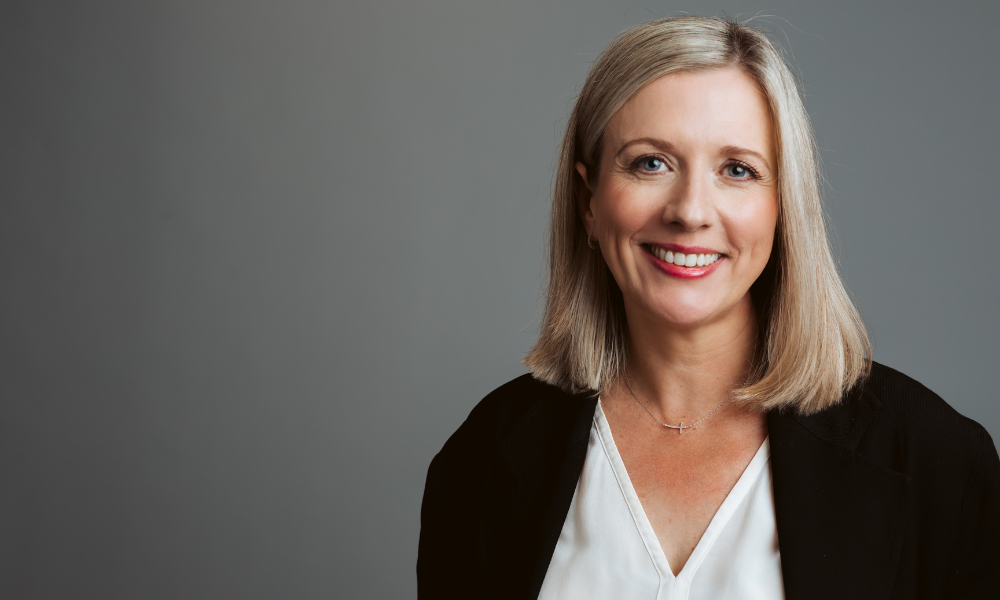
Louise Harding spoke to HRD about leaving a legacy and the human factors that drive growth

As the Chief People Office for a company with a 186-year history across New Zealand and Australia - Louise Harding says the best things that can be done is to leave a legacy on both their people and the industry.
Working for David Jones, who opened their first store in Sydney in 1838, Harding told HRD “We’re deeply committed to fostering an inclusive culture—it’s not just a principle; it’s embedded in how we work. Eighty percent of our workforce say we’re inclusive, reflected in our diverse teams across culture, religion, and identity.
"We support this through leadership development, awareness training on unconscious bias and hidden disabilities, and partnerships like Ability First,” she added.
“We invest in career pathways for First Nations people and gender-inclusive policies like menopause and parental leave. Over 80% of our workforce are women, and we champion female leadership. Inclusion is part of our DNA—our people genuinely care and drive it forward with purpose.”
The retailer has 40 stores across Australia and New Zealand.
Harding – whose career spans more than 25 years – started off wanting to be a business leader and used her education to steer her in that direction, studying Business Administration and Human Resources Management at RMIT University.
It was during her years of study and through working in business that her true passion of managing people became apparent – telling HRD “a business’ greatest asset is its people.”
“That’s why I gravitated to human resources because it sits in the perfect intersection between business strategy and getting results – so I wanted to focus on how to get the most out of the best resource that’s available to them. Human resources play a central role in shaping the workforce culture,” Harding noted.
It was also understanding how to harness the capabilities of a business’ workforce that intrigued her – working across several industries from financial services to hospitality, and most recently, retail.
“I've been lucky to be able to continue to learn because I love that learning experience, working with talented leaders and teams to show me the critical areas of HR and craft my skills - talent development, your technical skills, culture, engagement and leadership.”
Through her career – working for companies such as Lion and Bega Cheese Limited – Harding told HRD the driver for success in any business is down to its people and how you utilise that is the difference between doing well and struggling.
“It’s a theory I’ve been able to test throughout my career. A strong people-first culture is critical to sustainable results. Focusing on emotional intelligence and empathy to really connect with people is a key way to successfully lead a team.”
“On top of that, you then need to lead and mentor those teams to create the best performance. I get that fire in my belly when my team feel empowered, untied and inspired. I work with some amazing people and investing in them to create great opportunities is what makes them even more amazing – and it also creates the next generation of people and culture leaders,” Harding added.
Training and developing a team are vital, not just to address current workforce challenges, but wider developments, too – such as the use of artificial intelligence (AI). This, Harding mentioned, is the biggest technological change since the introduction of the internet.
“We're still navigating the pace of change and are at the beginning of the journey we've invested in. We’re looking at streamlining our recruitment process to use in our high-volume recruitment. We're investing in other tools, too, to help optimise inventory and buying. But we’re still at the beginning.”
The company are creating an environment that brings people along the AI journey to build awareness and upskill them to deal with the future working landscape.
“The challenge is balancing AI adoption with governance and the right capabilities, while unlocking productivity and smarter decision-making—enhancing, not replacing, human roles. We're introducing a digital literacy program this year, empowering teams to embrace AI within clear guardrails. This supports our transformation journey and aligns with broader retail shifts toward digital innovation,” Harding showcased.
So how can AI best be implemented? To Harding, it’s about “creating an environment where people feel confident experimenting with AI, using it to drive deeper data insights while removing fear and sparking curiosity. It’s a major industry shift, so investing in culture, tools, systems, and future-ready capabilities is essential—reframing AI not as a job threat, but as a powerful enabler of progress.”